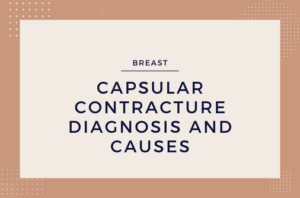If you have a capsular contracture, what should you do?
First, don’t panic. Take your time and explore your options. It’s not an emergency. If it’s a low-grade contracture (Grade 2) where the breast feels firmer than it should but doesn’t distort the breast or cause pain, you may simply choose to live with it. We’ve seen patients with these low grade contractures that remain stable for years with no significant progression. However, most patients with Grade 3 or Grade 4 contractures will seek treatment.
If you decide to have a capsular contracture treated, we have several options.
- Capsulotomy– The implant is removed in the operating room and the capsule is scored (cut) in multiple areas to break up the tight bands which may be restricting the capsule, and the implant replaced. If the implants are old, we suggest placing new implants.
- Capsulectomy – Similar to above, but most or all of the capsule is removed to create a “fresh” space for the implant. This is a more extensive procedure but may be indicated with a significantly scarred or diseased capsule
- Relocating the implant to a new pocket. An implant may be removed and changed in its location- shifting an implant placed directly under the breast tissue to a pocket under the muscle, for example.
- Placement of an acellular dermal matrix product in the pocket. These sheets of tissue are more commonly used in breast reconstruction after mastectomy, but do show promise in preventing repeat contractures in resistant cases.
- Remove the implant. This is the simplest and most reliable way to keep a capsular contracture from recurring. Without an implant, the capsule will not form. Of course, the breast will be smaller and may not be cosmetically acceptable to the patient.
So which option is best for you? Every patient is different and there’s no single approach that fits everyone.
If you feel that you have a capsular contracture and would like to discuss your options, give us a call. We’d be glad to help.
Next: Breast Implant Illness




